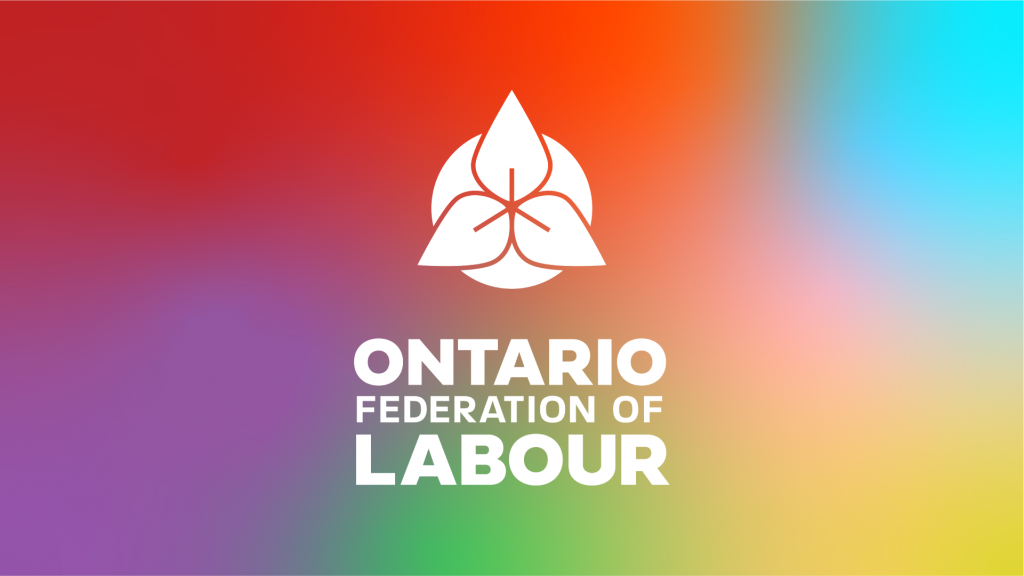Studies show that the majority of working women will experience some form of sexual harassment throughout their working lives; however the harassment experienced in the workplace is not solely limited to sexual harassment. Harassment on the basis of race, sexual orientation, disability, gender identity/expression and various other forms of personal harassment, compounded with harassment due to gender can make the workplace, and indeed society, dangerous and even lethal for many vulnerable workers.
June 2nd marks the anniversary of the death of Theresa Vince – a woman murdered at work by her boss after years of unrelenting sexual harassment in 1996. Nine years later, on November 12, 2005, Lori Dupont, a nurse at Hôtel-Dieu Grace Hospital in Windsor was murdered at work by her ex-boyfriend. These tragedies were the catalyst for the call for legislative reform and creation of a public education campaign identifying workplace violence as a hazard.
“Today many workers facing harassment have their situation exacerbated by post-recession cut-backs that have often led to vulnerable employees working in isolation and with fewer security personnel on hand,” said OFL President Sid Ryan. “We have to be doubly concerned for all of the victims of workplace violence who cannot speak up when they’ve been harassed or assaulted because they fear for their jobs. Union protection may give some workers the confidence to come forward with their cases, but what about those who do not? No worker should have to face harassment on their own.”
The Vince and Dupont families were joined by the OFL and other labour unions and women’s groups who worked together to identify harassment and violence as a workplace hazard. The success of the campaign resulted in legislative amendments to Ontario’s Occupational Health and Safety Act that came into effect on June 15, 2010 to finally address violence in the workplace. Under the Act, workers were granted the right to refuse work if they believe themselves to be at risk due to violence. Employers must also take precautions to protect workers from domestic violence as it crosses into the workplace. Two years after the implementation of the Act, the Ontario Government has yet to launch a public education campaign to raise awareness about it.
“Bill 168 promised to protect workers against workplace violence and harassment, but more needs to be done to strengthen the legislation, ensure its enforcement and provide the strongest possible protection against harassment,” said OFL Secretary-Treasurer Nancy Hutchison. “Victims need to have rights and know about them before they are able to exercise them, but they also need to be given the confidence that the law will be enforced and their rights will be vigorously protected. Otherwise, sexual violence and harassment will continue to be driven from public view.”
The OFL and various women’s groups continue to demand that Ontario’s McGuinty government take further concrete actions to end workplace violence and harassment. While the Occupational Health & Safety Act now defines workplace violence as a hazard, Ontario workers still need:
- Strong, effective and timely enforcement of existing legislation;
- Strong regulations on training and consultation with workplace joint Health and Safety Committees;
- An expansion of the Employment Standards Act definition for “compassionate leave” to ensure that job protection cover abused women who need time for legal issues, finding housing, addressing child care and healing;
- Provisions in the Human Rights Code, Occupational Health and Safety Act and the Employment Standards Act guaranteeing abused women the right to workplace accommodation, including the right to alternative work, flexible hours and job transfers;
- A multi-language public education campaign to ensure women workers know their workplace rights and where to go for enforcement;
- Funding for women’s organizations that provide support for women who experience harassment and develop community education
programs; and - An expansion of the Workplace Safety and Insurance Board policy on compensation for chronic stress in order to cover workers who
experience harassment, verbal and emotional abuse while on the job.
“Ontario unions continue to closely monitor enforcement of the new amendments and we are committed to strengthen anti-violence and harassment rights through collective bargaining,” said Hutchison. “Legislation is an important tool for challenging harassment in the workplace but real change will come when we send a strong message that harassment won’t be tolerated. Until education and enforcement are provincial priorities many victims of workplace violence and harassment will continue to face an unconscionable choice between their safety or their job.”
For further information:
Nancy Hutchison, OFL Secretary Treasurer: 647.403.9799 (mobile)
Joel Duff, OFL Communications Director: 416.443.7665 or 416.707.0349 (mobile)


